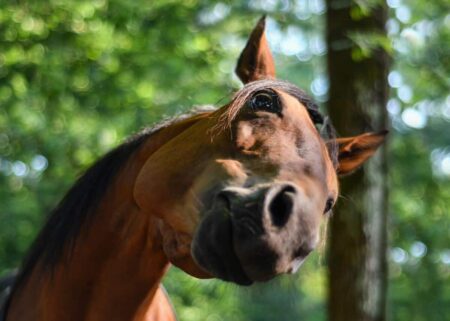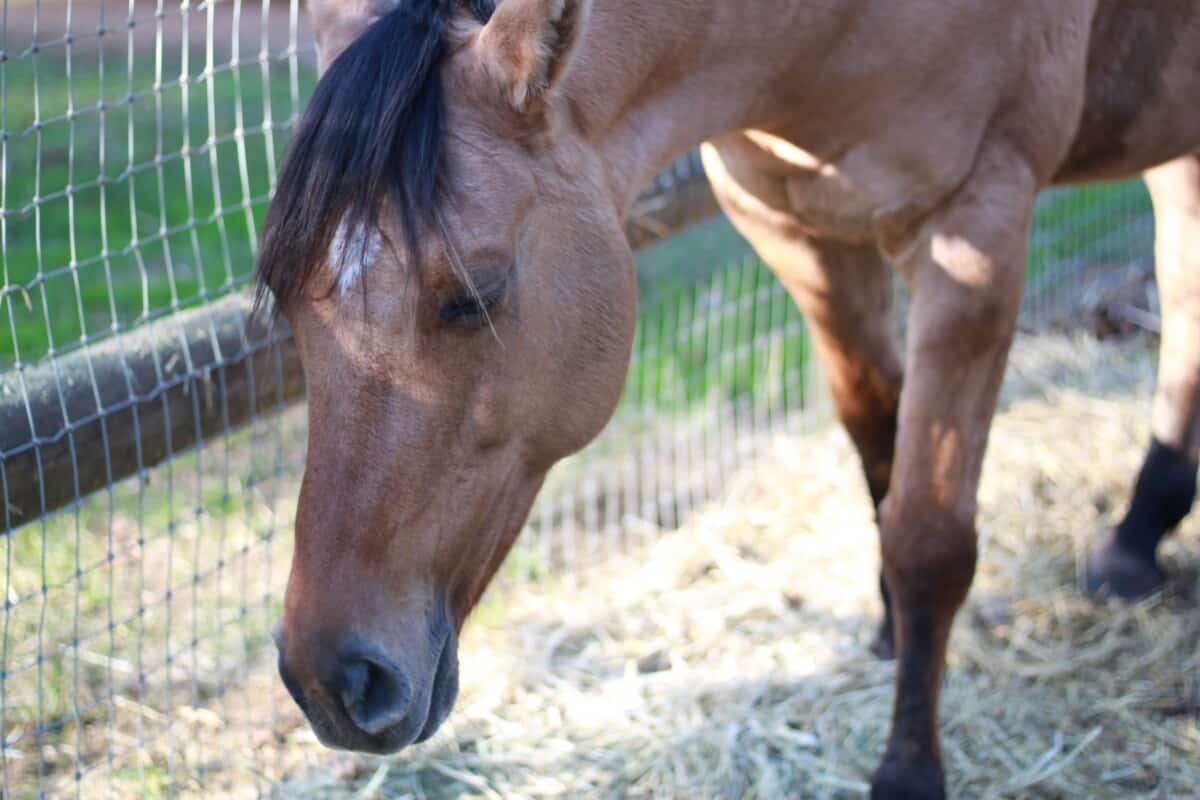
You’ve been shopping around for a new hobby and horseback riding really entices you. But how difficult is it to learn how to ride? How big of a challenge and commitment are we talking about? I have been asked these questions many times by parents considering sending their kids for horse riding classes and friends contemplating starting themselves. So here’s the lowdown.
Is horse riding easy to learn? Horse riding is not particularly easy to learn. It is both physically and mentally challenging to handle both your own posture in the saddle as well as the movements of the horse. Becoming a good rider can take years depending on how often and consistently you ride.
Like with most sports, there will always be more to learn and things to perfect. To an outsider, horseback riding may seem easy and effortless. But what if I were to say that synchronized swimming is easy, just because it looks so effortless? I’ll bet you any synchronized swimmer would tell me otherwise. And the reason why it looks easy is because they have worked their tails off to make it look that way. It’s the same with horseback riding.
But please don’t let this scare you! Horseback riding is a fantastic sport (and I am not at all biased..) that can provide a great sense of accomplishment and an incredible opportunity to connect with a beautiful animal.
Well, that’s the short version. There are so many aspects that play into how easy or difficult it is for someone to learn horse riding, so let’s have a look at those and find out what it could be like for YOU.
What Makes Horse Riding Easier to Learn for Some Than for Others?
There are many factors that will influence how easy or difficult learning to ride will be for someone just starting out. Some that are likely to play in your favor and others that perhaps don’t. But regardless of where you fall on the scale, it’s important to remember that almost anyone can learn how to ride!
Fitness level: horse riding is a physically demanding activity and requires a lot of leg, back, and core strength. Additionally, as you start advancing through faster gaits like trotting and canter, you will benefit a lot from a decent level of cardio fitness. If you are someone who exercises regularly you will probably do well on horseback. Core and leg strength will make it easier for you to sit balanced on the horse and to maintain a correct posture. For people who are not as used to physical exercise, this may be more challenging.
Regardless of your fitness level (and I don’t even care if you are a seasoned marathon runner, this will still apply to you!), you WILL have aches and pains the day after your first ride. There are muscles in play here that you just don’t use otherwise. Once your body gets accustomed to these movements you will experience less soreness, but do yourself a favor and stretch once you get off the horse. You can thank me later.
Balance: This will likely be somewhat linked to your fitness level, but having good balance will help you stay in equilibrium on the horse. It will also be helpful when mounting and dismounting as you will need to keep yourself in equilibrium when moving your leg across the horse’s back.
Motivation and goals: I’d say this applies to any sport, but your goals and the level of motivation you have to learn a new skill will greatly influence how quickly you progress. I often find that people who have a specific goal for learning something new tend to develop faster and also take more pleasure in the process. For instance, a mother who is taking a beginner’s class in order to accompany her daughter on trail rides has a clear goal and thus a strong motivation for continuing going to classes, whereas a teenager that participates in 4 different sports each week and that has no particular aim for her horse riding classes likely will not progress as fast.
Patience: The thing about horse riding is – you are dealing with a living breathing animal. And not only that. This animal also has a personality and opinions about what it does and doesn’t want to do. I’ll just let that sink in a little.. Once you learn how to do something, that knowledge needs to be transferred to your horse. Maybe you are having a bad day, maybe it is having a worse day. You get my point. Progress will take time and patience is just simply required.
Familiarity with Horses: Horses are large animals with distinct personalities, and they can be intimidating, especially for a novice rider. Having some experience or level of familiarity with horses before starting to ride can be a great advantage. If you have a basic understanding of equine behavior before getting in the saddle, it can help you predict the horse’s reactions and better adapt your actions to them. For instance, if you have been around horses before you may know that objects flapping in the wind can scare them. Knowing this, you may opt to leave your red scarf at home when going riding on a windy day.
Time invested: Assuming you have a particular goal in mind – the more time you put into practice, the sooner you will achieve your goal. But beyond that, if horse riding becomes your hobby, be warned. As this sport wins you over (because of course, it will, it’s great!), it will also take up an increasing amount of your time.
Budget: Yes, money. Horseback riding, unfortunately, is not the cheapest of sports. Depending on where you are located, a horse riding lesson can make a good dent in your monthly budget. If you are willing to invest in your horse riding endeavor, there is no doubt that private lessons are going to get you results faster than any group lesson ever will.
If money is not that much of an issue, perhaps look into a weekly group class with one or two private classes added on top. That will get you accustomed to the ‘rules of the ring’ so to speak, when in the presence of other riders, and also allow for some one-on-one where you can work on your particular pain points and ask the trainer any questions you may have.
Instruction: The skill and aptitude of your instructor will also have an impact on your progress. Generally speaking, you get what you pay for. A group class with an ok trainer will usually be your most affordable option, but it will also be the option that will see you progress at a slower pace. Ask people in the equine community for tips and advice on this. They are likely able to point you to instructors they have had good experience with.
Age: Age is last for a reason. Because there is no age that is ‘too old’ to start riding. However, physical fitness is an element of how easy or difficult the process of learning will be, so age consequently can be a factor that will influence progress.
Ok, so now we have talked at length about the aspects that influence how easy or difficult it is to learn to ride, but what about the time aspect?
How Long Does it Take to Learn Horse Riding?
Learning the basics of horseback riding is not done in a day. It usually requires 1 – 2 years of consistent effort to reach a level where you have all the skills needed to groom, mount, ride and provide basic care for a horse. This obviously depends on the amount of time you dedicate and your ability to learn. The most important take-away is simply that horse riding is not only about you, but also about another being. That’s what makes it such a challenge because progress does not only depend on you. It is also what makes it the greatest sport in the world (again, zero bias..)
Have fun learning and good luck!
Related Questions
Is Riding English or Western Harder? Usually, people tend to find Western-style riding easier than English style. This is mainly due to the difference in tack between the two disciplines. Riding in a Western-style saddle is easier because it has a raised cantle and pommel providing support for the rider both in front of the seat and behind, as well as something to grip onto if needed.
How often should you take horse riding lessons? In order to see good progress and not lose momentum, 2-3 classes per week is often optimal. However, the most important is consistency, so you do not forget the skills you have learned.
This article is accurate and true to the best of the author’s knowledge. It is not meant to substitute diagnosis, prognosis, treatment or any type of medical advice for humans or horses. Animals exhibiting signs and symptoms of distress should be seen by a veterinarian immediately.


